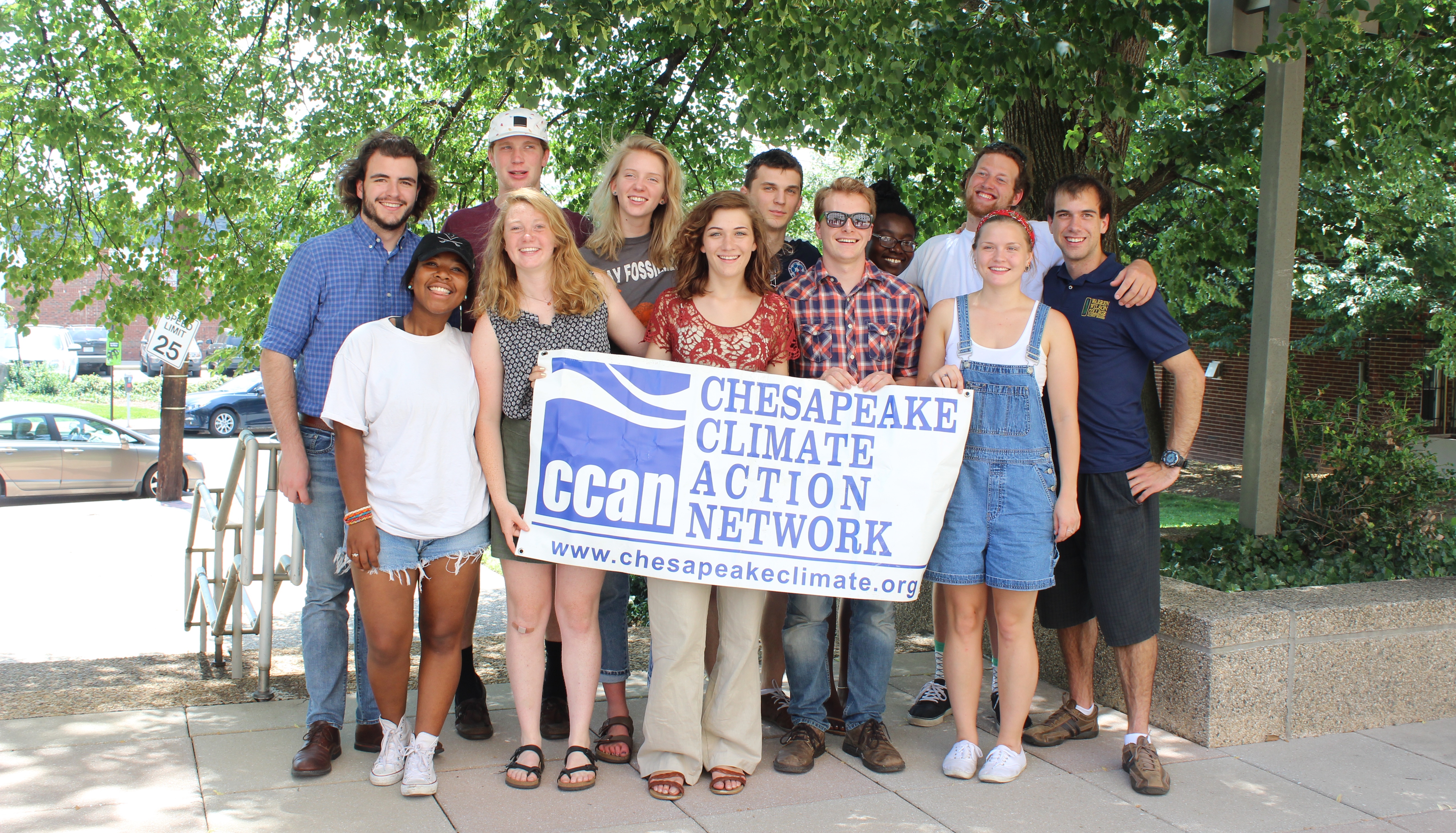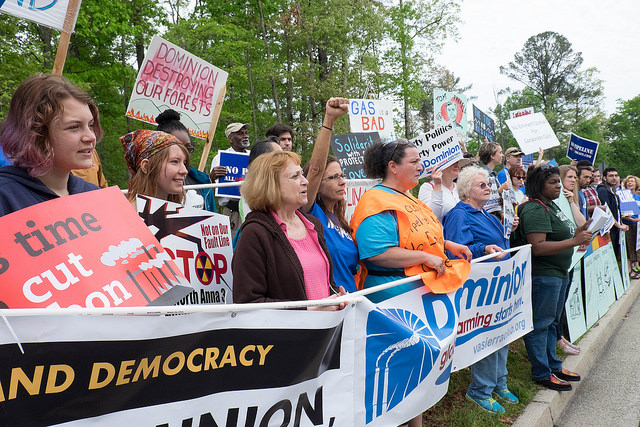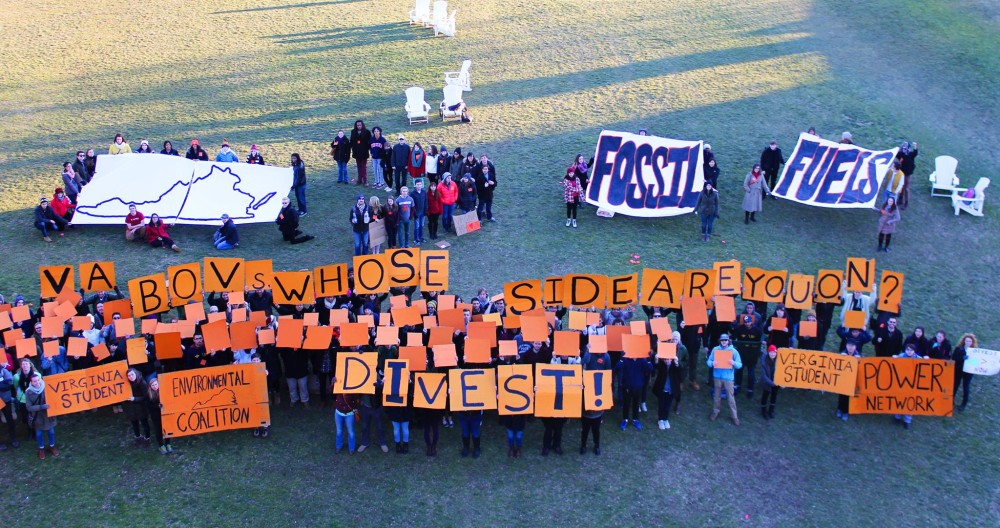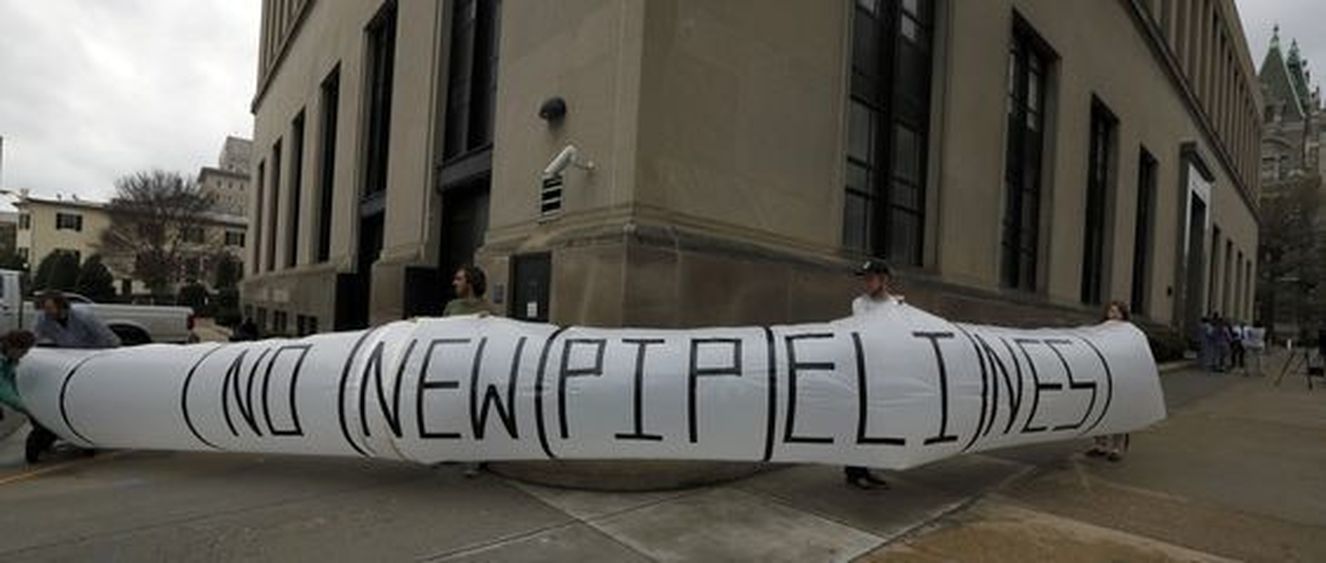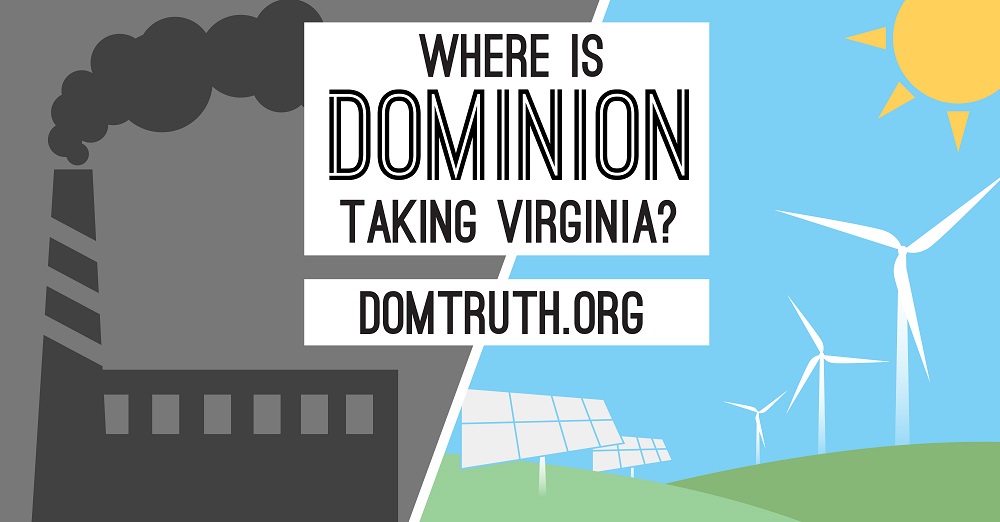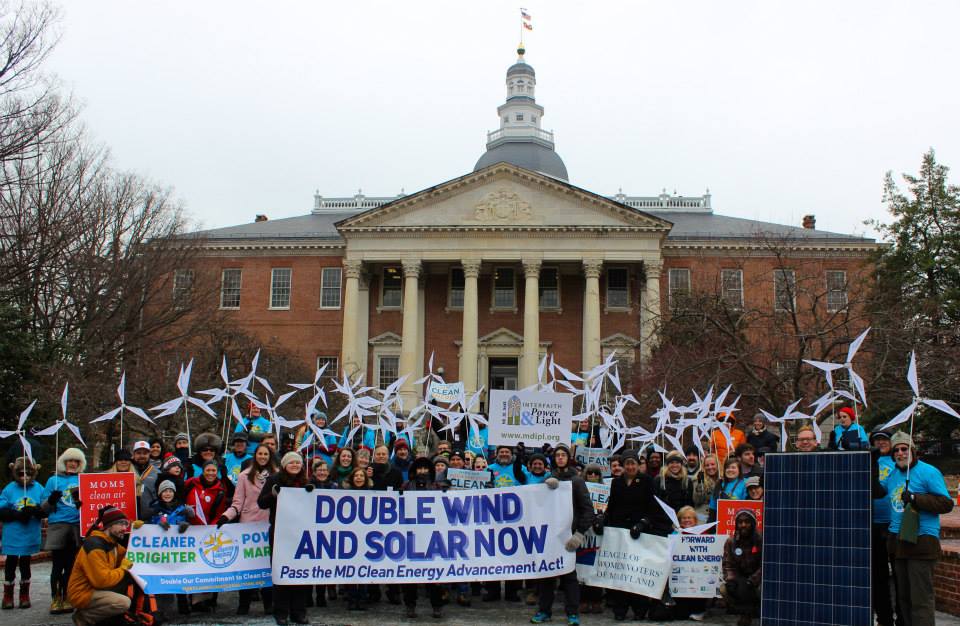Every summer, CCAN hires talented and passionate young people from across the region to join us as Fellows and interns. This summer, our Fellows and interns will be spreading out across the region to protect Virginia’s coast from rising seas, bring more clean energy to Maryland, stop dirty energy projects like fracking in Western Maryland and pipelines in central and southwest Virginia, and draw attention to the growing threat of bomb trains rolling through our cities and towns. Ultimately, they’ll be building the people-powered movement it’s going to take to bring the fossil fuel industry to its knees and tackle one of the most important issues of our time.
Thank you, in advance, to our Summer 2015 Fellows for all of the great work you’re going to do this summer!
And if you cross paths with one of our hard working fellows this summer, please join us in welcoming them to the CCAN team!
Introducing…CCAN’s Summer 2015 Fellows:
Beatrice Ohene-Okae – Safe Coast Fellow, Richmond, VA
 Beatrice is from Alexandria, Virginia, and is currently a junior at the University of Mary Washington majoring in Environmental Science. She is a student organizer with the Virginia Student Environmental Coalition and the Virginia Student Power Network. On her campus, she is involved in DivestUMW and UMW Students United, which focus on promoting sustainability and transparency as well as social and economic responsibility. Her passions include eating strawberries, learning more about sustainability issues around the world, and trying to play her violin.
Beatrice is from Alexandria, Virginia, and is currently a junior at the University of Mary Washington majoring in Environmental Science. She is a student organizer with the Virginia Student Environmental Coalition and the Virginia Student Power Network. On her campus, she is involved in DivestUMW and UMW Students United, which focus on promoting sustainability and transparency as well as social and economic responsibility. Her passions include eating strawberries, learning more about sustainability issues around the world, and trying to play her violin.
Kendall King – Safe Coast Fellow, Richmond, VA

Kendall is a rising second year at the University of Virginia. She’s originally from the east coast, but her parents currently live in Tulsa, Oklahoma and she attended high school there. She serves as media liaison for the Virginia Student Environmental Coalition, as well as Outreach Coordinator for the Climate Action Society at the University of Virginia.
Nqobile Mthethwa – Atlantic Coast Pipeline Fellow, Charlottesville and Richmond, VA
 Nqobile is a 3rd year at the University of Virginia, studying Political Science with a concentration on Foreign Affairs with a minor in Global Sustainability. She’s the political engagement coordinator of Virginia Student Environmental Coalition and a member of UVA Climate Action Society. She attended several energy and clean power plan hearings for the VA Energy Plan while interning with Appalachian Voices in 2014 and worked with Organizing for Action’s Climate Change team on Clean Power Plan and solar initiatives. Recently, she’s been working on the Atlantic Coast Pipeline resistance effort, organizing against natural gas infrastructure. She’s really interested in policy pertaining to energy in Virginia and how to build student political power to steer universities and the state towards a fossil free future.
Nqobile is a 3rd year at the University of Virginia, studying Political Science with a concentration on Foreign Affairs with a minor in Global Sustainability. She’s the political engagement coordinator of Virginia Student Environmental Coalition and a member of UVA Climate Action Society. She attended several energy and clean power plan hearings for the VA Energy Plan while interning with Appalachian Voices in 2014 and worked with Organizing for Action’s Climate Change team on Clean Power Plan and solar initiatives. Recently, she’s been working on the Atlantic Coast Pipeline resistance effort, organizing against natural gas infrastructure. She’s really interested in policy pertaining to energy in Virginia and how to build student political power to steer universities and the state towards a fossil free future.
Millie Smith – Mountain Valley Pipeline Fellow, Richmond, VA
 Millie just finished her sophomore year at Virginia Tech. She is in an interdisciplinary environmental studies program, with a concentrations on civic agriculture and urban planning. Based in Blacksburg, she has worked most with building community power and opposition to the Mountain Valley Pipeline.
Millie just finished her sophomore year at Virginia Tech. She is in an interdisciplinary environmental studies program, with a concentrations on civic agriculture and urban planning. Based in Blacksburg, she has worked most with building community power and opposition to the Mountain Valley Pipeline.
Nate Levine – Hampton Roads Organizing Fellow, Norfolk, VA
 Nate is a native of Virginia Beach, and it’s his love of surfing and the ocean sparked an urgency to fight climate change. He is currently pursuing a B.A. in English: Creative Writing and a B.A. in History at the University of Mary Washington. At Mary Washington, he directed his passion for environmental justice into organizing with the DivestUMW campaign, which is pressuring the administration and Board of Visitors to withdraw their investments from the fossil fuel industry. In his spare time, Nate enjoys surfing, hiking, writing poetry, and playing guitar.
Nate is a native of Virginia Beach, and it’s his love of surfing and the ocean sparked an urgency to fight climate change. He is currently pursuing a B.A. in English: Creative Writing and a B.A. in History at the University of Mary Washington. At Mary Washington, he directed his passion for environmental justice into organizing with the DivestUMW campaign, which is pressuring the administration and Board of Visitors to withdraw their investments from the fossil fuel industry. In his spare time, Nate enjoys surfing, hiking, writing poetry, and playing guitar.
Alex Krass – Bonner Center for Civic Engagement Fellow, Richmond, VA
 Alex Krass is a rising senior at the University of Richmond, majoring in Environmental Studies and Business. He started working on the divestment movement on Richmond’s campus. Originally from Vermont, he has lived there most of his life, giving him a true appreciation for the outdoors. Alex’s fellowship exists through a partnership with the University of Richmond’s Bonner Center for Civic Engagement.
Alex Krass is a rising senior at the University of Richmond, majoring in Environmental Studies and Business. He started working on the divestment movement on Richmond’s campus. Originally from Vermont, he has lived there most of his life, giving him a true appreciation for the outdoors. Alex’s fellowship exists through a partnership with the University of Richmond’s Bonner Center for Civic Engagement.
Jamie DeMarco – Clean Energy Fellow, Takoma Park, MD
 Jamie grew up in Baltimore and is currently a Chemistry and Environmental Studies double major at Warren Wilson College. He enjoys running, climbing and acting, but has recently come to enjoy activism more and more. This past year, he was involved in campaigns to reform smoking policies on his college campus, and volunteered as a sexual assault crisis responder. He also tied himself to the White House fence and lobbied Senators to combat climate change.
Jamie grew up in Baltimore and is currently a Chemistry and Environmental Studies double major at Warren Wilson College. He enjoys running, climbing and acting, but has recently come to enjoy activism more and more. This past year, he was involved in campaigns to reform smoking policies on his college campus, and volunteered as a sexual assault crisis responder. He also tied himself to the White House fence and lobbied Senators to combat climate change.
Kiernan Colby – Healthy Communities Fellow, Takoma Park, MD
 Kiernan is a senior Community and Justice Studies and Religious Studies major at Guilford College in Greensboro, North Carolina. Originally from Silver Spring, MD, Kiernan is a Quaker, musician and activist committed to fighting for the restoration of the Earth. When not organizing for social justice, Kiernan bikes, reads and plays guitar in a funk band. This summer, Kiernan will be working with CCAN and Forest Ethics as the regional coordinator for an international “Stop Oil Trains Week of Action.”
Kiernan is a senior Community and Justice Studies and Religious Studies major at Guilford College in Greensboro, North Carolina. Originally from Silver Spring, MD, Kiernan is a Quaker, musician and activist committed to fighting for the restoration of the Earth. When not organizing for social justice, Kiernan bikes, reads and plays guitar in a funk band. This summer, Kiernan will be working with CCAN and Forest Ethics as the regional coordinator for an international “Stop Oil Trains Week of Action.”
Sarah Snead – Don’t Frack Maryland Fellow, Takoma Park, MD
 Sarah is a rising senior at American University, majoring in Environmental Studies and minoring in Economics. She is from Westminster, Maryland originally. For the past 3 years she’s helped organize on her campus with Fossil Free AU. In her free time she plays on the women’s ultimate Frisbee team.
Sarah is a rising senior at American University, majoring in Environmental Studies and minoring in Economics. She is from Westminster, Maryland originally. For the past 3 years she’s helped organize on her campus with Fossil Free AU. In her free time she plays on the women’s ultimate Frisbee team.
Lauren Chartuk – Communications Fellow, Takoma Park, MD
 Lauren is a sophomore at Virginia Commonwealth University, majoring in English. Lauren is the Senior Secretary for Poictesme, VCU’s literary journal. She is also part of the Virginia Student Environmental Coalition, working with the media team and holding a seat in VSEC’s council. When she isn’t working with VSEC or Poictesme she’s in a hammock reading, or practicing her French in preparation for COP21 in Paris. Sauvons l’environnement!
Lauren is a sophomore at Virginia Commonwealth University, majoring in English. Lauren is the Senior Secretary for Poictesme, VCU’s literary journal. She is also part of the Virginia Student Environmental Coalition, working with the media team and holding a seat in VSEC’s council. When she isn’t working with VSEC or Poictesme she’s in a hammock reading, or practicing her French in preparation for COP21 in Paris. Sauvons l’environnement!
CCAN will also be joined this summer by two Takoma Park based Special Projects Interns – Derek Burtraw and Robin Rice.
 Derek is a senior at Ursinus College in Collegeville, Pennsylvania, working on a double major with Environmental Studies and Music.
Derek is a senior at Ursinus College in Collegeville, Pennsylvania, working on a double major with Environmental Studies and Music.
 Robin Rice is a rising sophomore at the University of Vermont.
Robin Rice is a rising sophomore at the University of Vermont.
Again, WELCOME to CCAN’s Summer 2015 Fellows and interns. We’re so excited to be working with you!
For Dominion there’s no hiding from the public
Photo Credit: Corrina Beall, Virginia Sierra Club
Last week over 150 protesters descended on Dominion Resources’ annual shareholder meeting in Glen Allen, VA. They came from all over—as far as Augusta County, Norfolk, and Cove Point, MD—to stand united against Dominion’s dirty energy investments.
For shareholders and executives attending the meeting, there was no hiding from droves of protesters lining both sides of the entranceway with their banners and a ‘mock’ inflatable pipeline.
What motivated so many activists to trek several hours for a protest on a Wednesday morning at 8am? For those who traveled from Augusta, Nelson, and Buckingham counties it’s their vehement opposition to Dominion’s proposed Atlantic Coast Pipeline (ACP), which would be constructed through their farms, businesses, and homes to serve as a conduit for ’fracked’ gas from West Virginia. Increasingly, Virginia landowners are fighting in solidarity with West Virginians opposing ‘fracking’ in their own backyards. If Dominion gets its way with the ACP, there’s little doubt that even more ‘fracked’ wells will be constructed in West Virginia to meet the growing pipeline capacity, threatening groundwater and releasing potent greenhouse gases into our atmosphere. With Virginia’s coast 2nd only to New Orleans as the most vulnerable area in country to sea level rise, it’s unacceptable for Dominion to be accelerating projects that contribute to climate change.
Pipeline opponents were not the only protestors in the crowd. Vans brought in dozens more from Northern Virginia and Hampton Roads and one group came from Lusby, MD, the site of Dominion’s proposed Cove Point export facility—another one of Dominion’s multi-billion dollar investments in ‘fracking’ infrastructure.
The huge turnout is an indicator of growing citizen backlash against the company’s dirty energy investments and dirty politics. This is becoming evident as articles and editorials in the press are frequently calling attention to Dominion’s “unrivaled power” in Virginia Politics, especially in the wake of the company’s successful efforts to partially halt the state’s oversight of its electric rates by passing favorable legislation in the 2015 General Assembly.
Opposition to Dominion’s dirty energy projects was not just limited to outside of the shareholder meeting. Even though non-shareholders were unable join the meeting, activist shareholders brought the public’s frustration to the forefront of the discussion. Six of the eight shareholder resolutions presented to the room demanded that the company take action on climate change or improve its environmental policies. Several of the resolutions received support in excess of 20%, and all but one received more support than last year, signaling a growing demand amongst investors that urgent action is needed on climate change. Later in the meeting shareholders had another opportunity to raise their concerns by asking questions directly to CEO Tom Farrell. Over a dozen people got up to ask questions and, except for one person, all of the questions were framed around Dominion’s dirty energy projects, climate change, or in one particular case, Dominion’s membership to the infamous American Legislative Exchange Council (ALEC).
This year’s annual shareholder meeting was not a walk in the park for Dominion Resources. Opposition from inside and out is chipping away at Dominion’s carefully orchestrated public image. With the public and the media increasingly skeptical, the time is right to continue pressuring Dominion to halt building massive fracked gas infrastructure and to reexamine its energy portfolio, which is currently at odds with our climate.
Does your vision of Calvert County include Dominion?
Virginia-based Dominion Resources has never been the first thing that’s come to mind when I think about Calvert County. I think about trail-running in the American Chestnut Land Trust, or fossil-hunting as a kid at Calvert Cliffs, or sharing stories with friends in Solomons. To me, Calvert County is famous for its friendly communities, fresh air and natural beauty.
Yet, for the past 6 months, Dominion has been changing that. After hiring non-local construction workers, creating traffic jams and clearing forests, they are continuing to build their massive Cove Point export facility to process and ship billions of gallons of fracked gas from the Marcellus Shale overseas.
As CCAN gears up its legal battle to challenge the Federal Energy Regulatory Commission’s approval of Cove Point, a relentless and growing group of community members from across Southern Maryland continue to organize: holding meetings, presenting at weekly Board of Calvert County Commissioners’ meetings, knocking on neighbors’ doors, and pushing against a behemoth company to protect their neighborhoods. And it’s all leading up to an exciting rally, march, and comm unity picnic on May 30th — The March for Calvert County to be Dominion-Free!
unity picnic on May 30th — The March for Calvert County to be Dominion-Free!
The day will begin with an inspiring rally at the Solomons boardwalk at 9AM. Following that, you can “join the flock” for a six-mile walk through Lusby ending at Cove Point Park, where we will celebrate everything we love about Calvert County. Join friends and community members for a family picnic and fellowship at 1PM.
Click here to join us at the March for Calvert County to be Dominion-free. On May 30th, we will show Calvert County that Dominion’s dirty fracked gas facility is not a done deal.
Since construction started, Dominion has failed the community, and now, it’s time to speak up. Show Calvert County and beyond that your vision of Calvert county is Dominion-Free. Let them know, we want our communities to be healthy and thriving, not polluted with more fracking wells or pipelines just so this corporation can make bigger profits.
Here are the details:
WHAT: March for Calvert County to be Dominion-free
WHEN: May 30th, 2015
WHERE: 9AM – Rally at Solmons Boardwalk in Solomons, MD
9:30AM – March! 6 miles from Solomons through Lusby
1PM – Picnic and Fellowship at Cove Point Park
750 Cove Point Rd, Lusby, MD 20657
See you May 30th at the March for Calvert County to be Dominion-free!
FERC Meetings in Virginia Demonstrate Widespread Opposition to Proposed Pipeline
Last week, the Federal Energy Regulatory Commission (FERC) held two public scoping meetings in Virginia to hear comments on the proposed Mountain Valley Pipeline project, a 300-mile interstate pipeline proposed to run from northern West Virginia to southern Virginia. These meetings, intended to gather input on the issues FERC must address in its environmental review, are the only two public meetings currently planned by FERC in Virginia. Two meetings have been held in West Virginia already and two additional meetings will happen in West Virginia this week. The pipeline would cost $3.2 billion dollars and transport two billion cubic feet per day of fracked gas extracted from the Marcellus and Utica shale formations.
The first meeting was held Tuesday night in Elliston, Virginia. A large crowd of nearly 400 people turned out. Before the meeting began, organizers from The Blue Ridge Environmental Defense League and Preserve Floyd joined local residents to sing songs and chants in opposition to the project. Unfortunately, while over 100 people signed up to comment at the meeting, only around 70 people were able to testify before the meeting was scheduled to end. On Thursday, residents gathered in Chatham, Virginia with an equally strong message of opposition to the project. About 100 people attended the Chatham meeting and a majority of the speakers expressed their opposition to the plans. Before the meeting, a group of opponents organized by The Blue Ridge Environmental Defense League and Preserve Franklin gathered to call for a “community veto” of the project.
Commenters shared their concerns about the environmental threats of the project specific to their properties, as well as their concern that the project would not provide sufficient public benefits to merit seizing land through use of eminent domain law. Additionally, commenters raised the concern that the company behind the proposed pipeline, Mountain Valley Pipeline LLC, has not released specifics on the proposed compressor stations for the project, that could be sited in either Montgomery or Roanoke Counties. This is problematic because people who could be living near the compressor stations, which are known to emit toxic pollution and come with significant safety dangers, will not get the opportunity to share their concerns with FERC at a public meeting.
Now that the two Virginia scoping meetings are over, we’re encouraging opponents of this pipeline project to share their concerns with FERC in writing. The comment period for the Mountain Valley Pipeline ends on June 16th. You can submit a written comment to FERC about the project here.
The Mountain Valley pipeline is one of three new fracked-gas pipelines the fossil fuel industry is pushing in Virginia. The Atlantic Coast Pipeline, a Dominion project, faces strong opposition to proposed construction, as well. Currently, Virginia Student Environmental Coalition students, along with CCAN organizer Drew Gallagher are biking the route of the proposed Atlantic Coast Pipeline in protest.
You can also join Beyond Extreme Energy for a protest at FERC Headquarters in Washington D.C. on May 27th for the Pipeline Opposition Day that’s part of Stop the FERCUS! and the May 14th mass nonviolent protest event, also happening at FERC headquarters during FERC’s May commissioner’s meeting.
Contact me for more information and to get involved! Lauren@chesapeakeclimate.org.
A busy spring for Virginia students
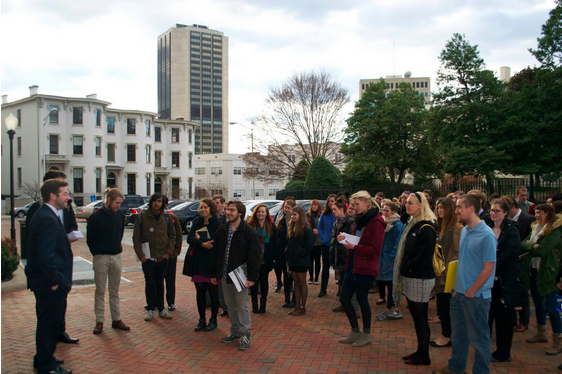
As the semester winds down and finals week ominously approaches, you might see a slight lull in Virginia student activism. Trust me, it won’t last long. But while students are studying, I thought I would recap the semester with some of the incredible highlights pulled off since January by the Virginia Student Environmental Coalition.
Students roared out of the gate in 2015, putting on the annual January VSEC Convergence before the semester even started. Sixty-five students from around the state came down to Richmond, Virginia for a weekend full of trainings on lobbying and Virginia policy. On MLK Day, they marched to meet Virginia’s Deputy Secretary of Natural Resources Evan Feinman, where they delivered 178 hand written letters opposing the Atlantic Coast Pipeline. Following the march, they descended upon the Virginia General Assembly, where they met and lobbied thirteen state delegates and senators on the Virginia Coastal Protection Act.

Three weeks after flexing their political muscles at the Capitol, VSEC was at it again in Fredericksburg at the University of Mary Washington putting on Virginia Power Shift 2015. This time more than 350 students gathered from across the state to discuss building student power, the intersectionality of our movements, and how we can make serious change in Virginia.
The first Virginia Power Shift in 2014 had 125 attendees, and ten short months later Virginia Power Shift 2015 almost tripled that number. A true testament to the growth of student activism in Virginia.
You’d think after Power Shift things would have cooled off for a bit. Wrong. Recharged and reinvigorated, dozens of VSEC students spent their spring breaks’ in the mountains of south west Virginia at Mountain Justice Spring Break. MJSB is a week long action camp centered around combating mountain top removal mining and fracking in Appalachia.

In late March, students at the University of Mary Washington began a 20 day sit-in of their President’s office demanding a subcommittee be formed to study the prospect of divestment. The sit-in ran peacefully for almost three weeks until the administration had state troopers remove students from their occupation, arresting two. The arrests sparked a flurry of action across the state and amplified the energy surrounding divestment in Virginia. There have been at least 5 divestment campaigns launched within the past month capitalizing on the recent momentum.
The Divest UMW sit-in fell within a larger wave of student divestment sit-ins that swept the nation, happening at schools such as Harvard, Yale, Tulane, Colorado University, Swarthmore and Wesleyan. Divest UMW students helped lead the way and provided experience and support to other schools beginning their sit-in.

Virginia students prefer to end on a bang, not a whimper. In two weeks you will find them closing out the semester with a group of more than thirty students riding their bikes across Virginia.They’ll be following the route of the proposed Atlantic Coast Pipeline to help reinforce local resistance and grow the opposition. The ride will take 10 days and will take students from the mountains of Highland County to the coast of Virginia Beach. Each night students will meet with community members and learn their stories. The ride is used as a tool to draw attention to these stories and raise awareness of the dangers of this proposed pipeline.
The Virginia Student Environmental Coalition has had an inspiring semester of action, growth, and new possibilities. New alliances and friendships were formed. Power was built. And the horizons were broadened. The students of Virginia are ready to carry their success forward and change the course of Virginia for the better.
Letter from the Director: States Matter
Dear CCANers,
In the face of a broken Congress, can individual U.S. states do enough on climate change to save America (and the world) from the worst of global warming? I used to think “no,” but now I’m more optimistic. After all, if California were a nation, it would have the seventh-largest economy in the world. So it’s a breakthrough of global ramifications that California is now committed to a dramatic 50 percent clean electricity standard by the year 2030. That’s huge.
State-based climate policies like this are precisely why wind and solar power prices are plummeting across America, priming the pump for revolution. We’ve done our part in the Chesapeake region recently. We worked to pass a solar incentive bill in Virginia in February, a pro-wind power bill in the District of Columbia in January, and we continue to lead ongoing efforts to expand a statewide greenhouse gas reduction plan in Maryland.
Still, ultimately, our lawmakers in Washington will have to participate if we’re going to permanently transition off of fossil fuels. Which is why CCAN was thrilled to work with Maryland Congressman Chris Van Hollen in February as he reintroduced the carbon-cutting, economy-boosting Healthy Climate and Family Security Act of 2015.
This bill would cap carbon emissions nationwide, forcing polluters to pay for their emissions and rebating 100% of the collected funds with a quarterly “dividend” check to every American resident. It’s the best climate solution bill ever introduced in Congress – and, eventually, it will pass. I’m sure of it. Click here to urge your members of Congress to co-sponsor it!
But in the meantime, it’s been gratifying to see other states draw inspiration from the Van Hollen “cap-and-dividend” bill to launch their own state-based campaigns to put a price on carbon. Rhode Island, Vermont, Massachusetts, Oregon, and Washington state now all have bills introduced in their general assemblies that would put a fee on carbon emissions and rebate some or all of the money to citizens.
Oregon really stands out. A new group there called Oregon Climate is running a full-throated campaign to pass a bill very similar to Van Hollen’s. If you want to be inspired by West Coast activists who are kindred spirits of CCAN activists like you, watch this quick video. Hats off to Oregon Climate and all the great heroes in dozens of states nationwide who have turned the clean energy mission into a local fight of global consequences.
Finally, speaking of fight, I want to give a shout out to the students at Mary Washington University in Fredericksburg, Virginia. Dozens of them, with support from students across the state, made national news by occupying the UMW president’s office for 21 days this spring. It was part of a national campaign to get colleges and universities to divest from fossil fuels. In the end, three folks were peacefully arrested at UMW as the sit in came to a close. But not before first inspiring students and non-students across the region, and forcing the UMW board of visitors to take up the issue. A wave of similar protests continues to grow at Harvard, Tulane, Tufts, Swarthmore, the University of Colorado, Yale and elsewhere.
Power to the people!

Mike Tidwell
Opposition Mounts to New Fracked Gas Pipelines in Virginia
Public outrage continues to build in opposition to the proposed Atlantic Coast and Mountain Valley pipelines. Groups across the state are meeting frequently to stay informed about the scoping processes, support landowners in the paths of the proposed pipelines and share the potential harmful effects these projects could have if they are allowed to move forward.
On April 21st, Politico published a lengthy investigative piece entitled, “Pipelines Blow Up and People Die”, bringing pipeline safety issues front in center in the national political conversation about energy. At the beginning of April, CCAN and anti- pipeline coalition partners delivered over 5,000 messages to Governor McAuliffe’s office urging him to rescind his support for the project.
Virginians across the state are coming together and the message is clear: no new fracked gas pipelines! Take action now by submitting a public comment to the Federal Energy Regulatory Commission (FERC) in opposition to the Atlantic Coast Pipeline here. We have until April 28th to weigh in with FERC on the proposed scope of its environmental review of the project, and demand that the agency consider all of the possible impacts to our communities and climate.
In the battle against the Atlantic Coast Pipeline, opponents are calling for an extension to this April 28th deadline. Groups in Nelson, Augusta and Buckingham Counties, along with thousands of concerned citizens and U.S. Senators Mark Warner (D-VA) and Tim Kaine (D-VA), have submitted requests to allow more time for the comment period, and to hold further meetings in communities that will be impacted by the project.
The senators’ joint letter to new FERC chairman Norman Bay highlighted the frustration Virginians have faced so far during the scoping process:
“As discussed, our offices received multiple accounts of discrepancies between these meetings announced start times and the times at which people could sign up to speak. Some constituents commuted significant distances after full days of work arrived to discover that speaking slots had been claimed hours earlier.”
Communities in the path of these projects will not be silenced and CCAN will continue to work with coalition partners to organize against them.
The next step you can take to get involved is to attend a FERC scoping meeting for the proposed Mountain Valley Pipeline. FERC announced on April 17 that it will prepare an Environmental Impact Statement for the Mountain Valley Pipeline and, like for the Atlantic Coast Pipeline, will first consider public input on the scope of this review. There are two scheduled meetings in Virginia:
Tuesday May 5, 7:00 p.m.
Eastern Montgomery High School
4695 Crozier Road, Elliston, VA 24087
Thursday May 7, 7:00 p.m.
Chatham High School
100 Cavalier Circle, Chatham, VA 24531
See you there and thanks for staying involved! Please reach out to Lauren Goldman, Virginia Campaign Coordinator to get involved at Lauren@chesapeakeclimate.org.
Check out DomTruth.org and pass it on
Earth Day is here and so is our eagerly anticipated new website: domtruth.org. After months of hard work, we’re excited to release this interactive website as an educational platform to expose the dirty truth about Virginia’s largest utility company and most powerful corporation: Dominion Power.
Every year around Earth Day, Dominion funds slick ads, community projects like tree-plantings, outdoor festivals and more to paint itself as a “green” and “sustainable” company. Domtruth.org is our way of setting the record straight.
Click here to start the “tour” and pass it on!

As you scroll through the site, you’ll see that Dominion is the state’s #1 emitter of the heat-trapping pollution wrecking our climate. Dominion is also the #1 corporate donor to state politicians. For far too long, Dominion has used its power to rig the system against local, clean energy solutions and for costly fossil fuel projects, and Virginians are paying a high price as a result.
We call Dominion’s deliberate misleading of the public “greenwashing.” This year in particular, we expect Dominion to churn out more greenwashing than ever before — because the company is facing more public scrutiny and protests over its dirty energy projects than we’ve seen before.
You know there’s a serious image problem when sixth graders and senior citizens alike are standing up at county meetings to decry Dominion’s 550-mile pipeline for fracked gas; when riverkeepers are joining with history buffs to challenge Dominion’s massive proposed transmission lines over Jamestown; and when editorial writers across the state are hammering the company’s anti-consumer “power politics.”
With so much opposition brewing, particularly in response to the Atlantic Coast Pipeline, we’re seeing cracks open up in Dominion’s tightly controlled corporate image. We’re also seeing Dominion’s tight grasp over our democracy get renewed exposure and criticism in the media.
When Dominion put forward legislation in the 2015 General Assembly to partially halt state oversight of its electric rates, news stories zeroed in on Dominion’s “unrivaled political power” over the General Assembly. Following fierce public backlash, legislators ended up amending the bill to lay the groundwork for 400 megawatts of new utility-scale solar in Virginia and to create new energy efficiency pilot programs.
We know by exposing the truth, and bringing more people across Virginia into our movement, we begin to take the power back from Dominion. And nothing worries Dominion more than losing its power — over our energy system and over our democracy.
Help pull back the curtain on Dominion’s greenwashing, and build the movement for solutions, by checking out domtruth.org and then passing it on — especially to your friends and family in Virginia!
Annapolis wrap-up: What happened in the 2015 Maryland Legislative Session?
The final gavel came down close to midnight in Annapolis yesterday, marking the end of this year’s Maryland legislative session.
Here’s the best and biggest news: The fracking moratorium bill (HB 449) won final passage through the General Assembly with a resounding, bipartisan House vote of 102-34 last Friday afternoon! The bill — which prohibits gas companies from fracking for natural gas in Maryland through at least October 1, 2017 — is now officially headed to Governor Larry Hogan’s desk.
This victory was only possible because of our powerful grassroots movement pushing every step of the way for the past five years, and we won’t let up now.
The fracking fight proves that overcoming powerful interests and politics to pass bills in Annapolis is often a multi-year process — which leads me to the disappointing news:
Despite a fierce and broad-based campaign, our landmark bill to raise Maryland’s clean electricity standard (HB 377/SB 373) fell short. In a vote last Thursday, the Senate Finance committee failed to pass the Clean Energy Advancement Act. But there’s a silver lining. The committee chair and vice-chair both voted with us, giving us a strong foundation to build on next year. We’ve also built significant momentum behind the bill in numerous other ways — thanks to the persistent action of CCAN volunteers like you, as well as the faith, business, health, and labor leaders who joined the call for cleaner energy. Click here for a round-up of the momentum you helped build in 2015, and get ready to keep pushing.
Here’s an update on the other bills we’ve worked on in 2015 — including a significant clean energy bright spot:
VICTORY on local solar solutions: The General Assembly passed a bill to establish a 3-year “community solar” pilot program in Maryland! Starting in 2016, the bill (HB 1087/SB 398) will set up a process for groups of Marylanders (i.e. not just individual homeowners) to split the credits for electricity generated by a shared solar installation. This will introduce a new model to Maryland that gives renters and low- and moderate-income residents access to the benefits of solar energy.
Shedding light on the risks of crude oil trains: We got halfway there in advancing legislation (HB 1073) to require a state study of the risks of crude oil train accidents in Maryland. The House of Delegates voted overwhelmingly — 123 to 14 — to pass the legislation, but the bill then stalled in the Senate Finance Committee. As more and more tankers carrying explosive oil from North Dakota move through Maryland, CCAN will continue to work at multiple levels to protect our communities. Stay tuned!
Paid sick days for a healthy Maryland: CCAN added our voice to the campaign to pass paid sick days legislation in 2015, along with the Working Matters coalition of more than 130 faith, labor, civil rights and environmental groups. Unfortunately, this bill (SB 40/HB 385) also stalled in the General Assembly. Thanks to everyone who took action for a healthy environment and healthy people in Maryland — this fight will continue.
Our long-term goal at CCAN is to ensure clean solar panels and wind turbines spread across Maryland, not dirty coal-fired powered plants, toxic fracking wells or emerging threats like crude oil trains.
We’ve made significant progress so far in 2015, even where we didn’t get across the finish line. And it’s because of all of the ways you’ve made our movement for climate solutions a part of your life — meeting with your legislators, flooding their offices with calls and emails, joining rallies in Annapolis, writing letters to the editor, and more.
We’ll keep you updated as the fracking moratorium bill heads to Gov. Hogan.
For now, THANK YOU, and let’s keep rolling!
Marylanders Stand up for Clean Energy
Yesterday, the Maryland General Assembly’s 2015 legislative session came to a close. As legislators pack up their offices and return back to their districts, we know that they will carry a message back with them: Marylanders from Cove Point to the mountains of Western Maryland want our state to be a leader in climate change.
This year, we reintroduced the Clean Energy Advancement Act – landmark legislation that would have mandated that 40% of the electricity that we use to power our homes and communities comes from renewable sources such as wind and solar. The legislation was later amended to require that 25% of the energy we consume comes from renewable sources by 2020. This was a top priority of Maryland’s climate action plan and would’ve also placed Maryland on the trajectory to double wind and solar by 2025.
From the very first day up until the final vote was cast we kept our voices raised for clean energy.

We were there on the first day of session. As legislators entered their offices, activists packed Lawyers’ Mall to say that they want wind turbines and solar panels to dot Maryland’s landscape, not fracking wells and coal-fired powered plants. Activists knew that in order to transition Maryland to a clean energy future where public health is protected and our landscape is not marred by fossil fuel spewing energy sources that we needed to pass strong legislation. We needed to challenge Maryland’s utility companies to clean up their act and provide Maryland residents with electricity sourced from renewable sources such as wind and solar.
This year – more than ever, it was evident that the climate movement in Maryland is not comprised only of environmental activists. Our movement is comprised of people from all walks of life who want healthier families, new economic opportunities and cleaner air. We were joined on the first day of session by faith leaders, labor leaders, health advocates, and civil rights organizations. Each raised their voices to show Maryland’s leadership that the issue of climate change impacts the future of all Marylanders.

The faith community raised their voices: Over 250 faith leaders signed onto a letter calling upon our elected leaders to care for God’s creation. This was prompted by the efforts of the Ecumenical Leaders Group – a committee of seven leaders of Christian denominations. This marks the first time that this group of senior religious leaders has spoken out together on a matter of environmental concern.
The business community raised their voices: Over 150 businesses, from solar companies such as BithEnergy to a local 7-11 store, called on their elected leaders to pass the Clean Energy Advancement Act. Business owners such as Roger Blunt, a retired US Army General and founder of Essex construction, stated, “For the good of our economy, and for the good of our veterans, we need to pass the Maryland Clean Energy Advancement Act. By raising our renewable energy standard, we’ll send a strong market signal that Maryland is the place for solar and wind manufacturers to set up shop. We’ll also expand a growing clean energy workforce that employs a high percentage of veterans like me.”
Labor leaders raised their voices: This year we were joined by Maryland Working Families, SEIU Local 500 and SEIU 32 BJ. They know that a clean energy future would provide jobs that not only protect our environment but that support Maryland’s working families. Maryland’s manufacturing sector has been in decline over the last decade. Representatives of Maryland’s labor movement know that investing in the clean energy sector is a win-win for working families and economic development. “The Maryland Clean Energy Advancement Act means more jobs for Maryland, including more public sector jobs, more manufacturing and constructions jobs,” stated Charly Carter, Executive Director of Maryland Working Families. “That is a big win for all of Maryland’s workers and for our communities.”
Our legislators raised their voices: Sixty-two legislators cosponsored the Clean Energy Advancement Act. When the legislation came to a vote in the Senate Finance Committee, the chair Senator Mac Middleton and vice-chair Senator John Astle sent a strong message that they wanted to advance this bill out of the committee and onto the floor for a vote. Unfortunately, the bill stalled in the Senate Finance Committee. But thanks to everyone who took action, we have garnered the support of these key leaders in the General Assembly and will continue to garner the support of committee members next year.
And we raised our voices.

In my few short months organizing for the Chesapeake Climate Action Network, I have been amazed at the dedication and determination of our activists. Hundreds of you braved frigid temperatures and icy roads to stand in Lawyers’ Mall and rally for clean energy. Many of you traveled from all corners of the state to speak to your legislators about the Clean Energy Advancement Act. Over 100 activists met with their legislators. You called your legislators at critical points in our campaign to lead Maryland into a future where children can breathe clean air and families can thrive and be supported by good, green jobs. Over the last few weeks you did not become discouraged. You kept marching on submitting letters to the editor, visiting legislators offices and raising your voices for Maryland’s future.
When I look back over the last few months and the time, energy, and effort that was put into this campaign, I am reminded of a quote: “There is hope if people will begin to awaken that spiritual part of them, that heartfelt knowledge that we are caretakers of this planet.” While the Clean Energy Advancement Act was not enacted into law in 2015, I am hopeful. Each one of you who raised your voice and took a stand to preserve the earth for future generations has that same hope and knowledge instilled in your spirits. And indeed, we will continue to raise our voices until this is done.

